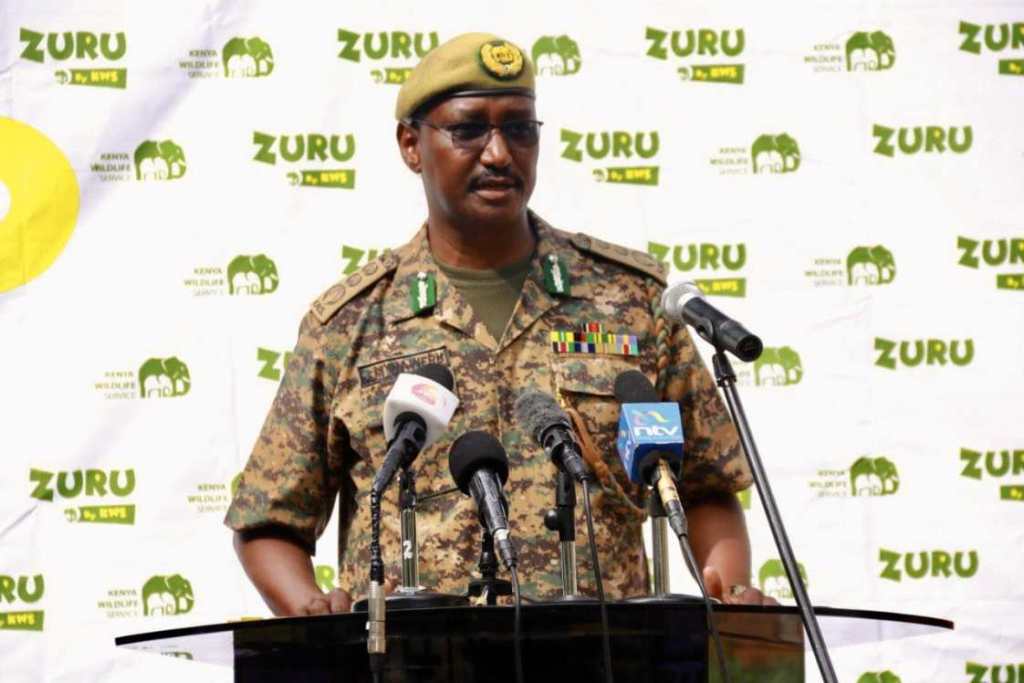Broke KWS lacks Sh1b to pay wildlife victims
By Rawlings, December 5, 2022Kenya Wildlife Service (KWS) is unable to pay Sh1 billion in compensation to victims killed or injured by wildlife.
KWS Director-General, Brigadier (Rtd) John Waweru, says compensation to victims killed or injured by wildlife runs into millions of shillings yet the budgetary allocation is inadequate.
Waweru, while appearing before the Senate National Security and Defense chaired by William Cheptumo (Baringo), said the agency is only allocated about Sh500 million for compensation, which he said is inadequate.
The retired military man said two-thirds of wildlife do not live in the 23 National Parks or the 28 National reserves, a move he said leads to human-wildlife conflict.
“We have claims that run to about Sh1 billion but we are only allocated about Sh500 million,” Waweru told the legislators. Under the Wildlife Conservation and Management Act schedule, if death or an injury occurs from Elephant, Lion, Leopard, Rhino, Hyena, Crocodile, Cheetah and Buffalo a victim will be compensated Sh5 million payable in instalments of three financial years.
The same schedule also outlines that a farmer whose crops, livestock or property are destroyed from Elephant, Lion, Leopard, Rhino, Hyena, Crocodile, Cheetah, Buffalo, Hippo, Zebra, Eland, Wildebeest, Snake and Wild dog will be compensated by KWS.
Waweru stated the move had been arrived at following complaints by MPs that the claims were not reaching families of victims in time. Instead, Waweru told the lawmakers that the ministry was looking into ways of partnering with insurance firms to undertake compensation module to victims of wildlife-human conflict.
“The ministry was to partner with insurance firms to settle the claims. The engagement with insurance firms is at the ministerial level,” Waweru noted.
He further said there is no policy or guidelines on Corporate Social Responsibility even as the agency allocates Sh50 million for the same.
Natural disasters
In addition, the agency does not have any guidelines for watering and grazing purposes of livestock during drought in National Parks.
The KWS boss said the formulation of guidelines and policy is a preserve of Ministry of Tourism and Wildlife as provided under Section 102 of the Wildlife Conservation and Management Act, which the country does not currently have.
Waweru was responding to concerns raised by senators on whether members of communities living near National Parks and Game Reserves were allowed to graze in the protected areas during drought and famine.
“The Act states that the Cabinet Secretary shall make guidelines in consultation with Kenya Wildlife Service with respect to accessing national parks for purposes of grazing and watering of livestock in times of drought and other natural disasters,” Waweru explained.
KWS had entered into an agreement with Kitui County Government for the management of South Kitui National Reserve for a period of 25 years after developing an MoU in 2019, an agreement that has not been fully implemented.
Waweru, however, told the committee that the MoU was not signed and many obligations have not been fulfilled and the County Government of Kitui has not fulfilled its obligations with KWS providing financial and human resources for its management.
The KWS said the MoU had targeted the development of infrastructure in the reserve but this was not achieved because of lack of resources and human encroachment including their livestock coupled with inadequate coordination between KWS and the County Government.
More Articles

